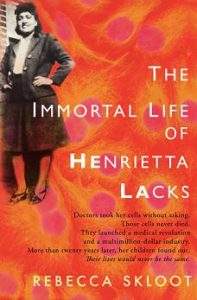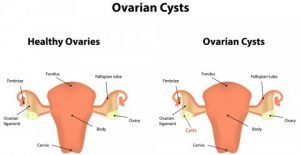Henrietta Lacks has gone to space, won several Nobel prizes, and fueled the multibillion-dollar cell culture industry but she doesn’t know any of this. She hasn’t received accolades or been compensated with a single cent either. How? Because she died of cervical cancer in 1951 at John Hopkins Hospital. Shortly after her death, a biopsy of her tumor was taken for research in a cervical cancer lab but instead of dying like cells had before, her cells reproduced another generation every 24 hours. The cells were shared with other researchers before being mass produced and used to test the first vaccine for polio that ended up extinguishing the disease for good. Permission for doctors to use anyone’s cells or body tissue at that time was normally not obtained so the fact that Henrietta or her family didn’t give direct consent is not surprising.
The part that is unsettling is that even after the 1970’s, when informed consent came into practice, nothing was done to compensate her family. However, I do think it’s important to note that George Gey, the original scientist who worked with the HeLa line, attempted to protect the privacy of the deceased and made the cells available to all interested in biological research at no cost. Biotechnology laboratories and academic research institutions are the ones who continually divided her cells and profited millions while the Lacks family couldn’t afford proper healthcare, not the scientists attempting to cure cervical cancer. Although I don’t believe it’s just to use a person’s remains without their consent, at the time, common practices were followed. The real injustice is that over 50 years later, rich white profit-seeking men are continually exploiting a poor African American woman who lost her battle with cancer.
A somewhat similar but more modern case was presented in 1990 with the case of Moore vs. Regents of California. John Moore had visited the University of California Medical Center in 1976 seeking leukemia from Dr. David Golde. Dr. Golde took cell samples and created a cell-line without the knowledge or consent of Mr. Moore. Moore, a well-educated white man, sued for a portion of profits gained from his own body upon finding out that Dr. Golde was attempting to sell the line to Genetics Institute, a biotechnology corporation in the commercial application field. The Court did not agree with Mr. Moore as they concluded that bio-medical research would be undermined if individual patients had the power of profit from medical advancement as a result of their own physical make-up. It said nothing about the implications of profit on the researchers side. This decision made a blanket statement that says medical researchers have the ultimate right to body tissues of patients for private gain.
The issue boils down to Henrietta’s autonomy versus the principle of benevolence in reference to the lives that were saved with research involving cell research. The obvious benefit is the obliteration of polio and the lives and resources saved in doing so. However, does this benefit to society justify violating a patient’s autonomy? I do think the benefits to advancement in the medical research field are significant but I don’t believe that justifies exploiting a patient for profit. Dr. Gey’s collection method isn’t ethically sound in our eyes but when the cells were taken, common practice was followed. Does that make him excused from the controversy on grounds that his intentions were pure? Or should he still be held accountable for all the implications that followed? Lastly, how does Moore vs. Regents of California affect future patient rights? I look forward to hearing what you all think about the controversy!
Resources:
Moore v. Regents of the University of California. (n.d.). Retrieved from http://www.casebriefs.com/blog/law/property/property-law-keyed-to-cribbet/non-traditional-objects-and-classifications-of-property/moore-v-regents-of-the-university-of-california-2/
Skloot, Rebecca, The Immortal Life of Henrietta Lacks (New York: Random House, 2010)



